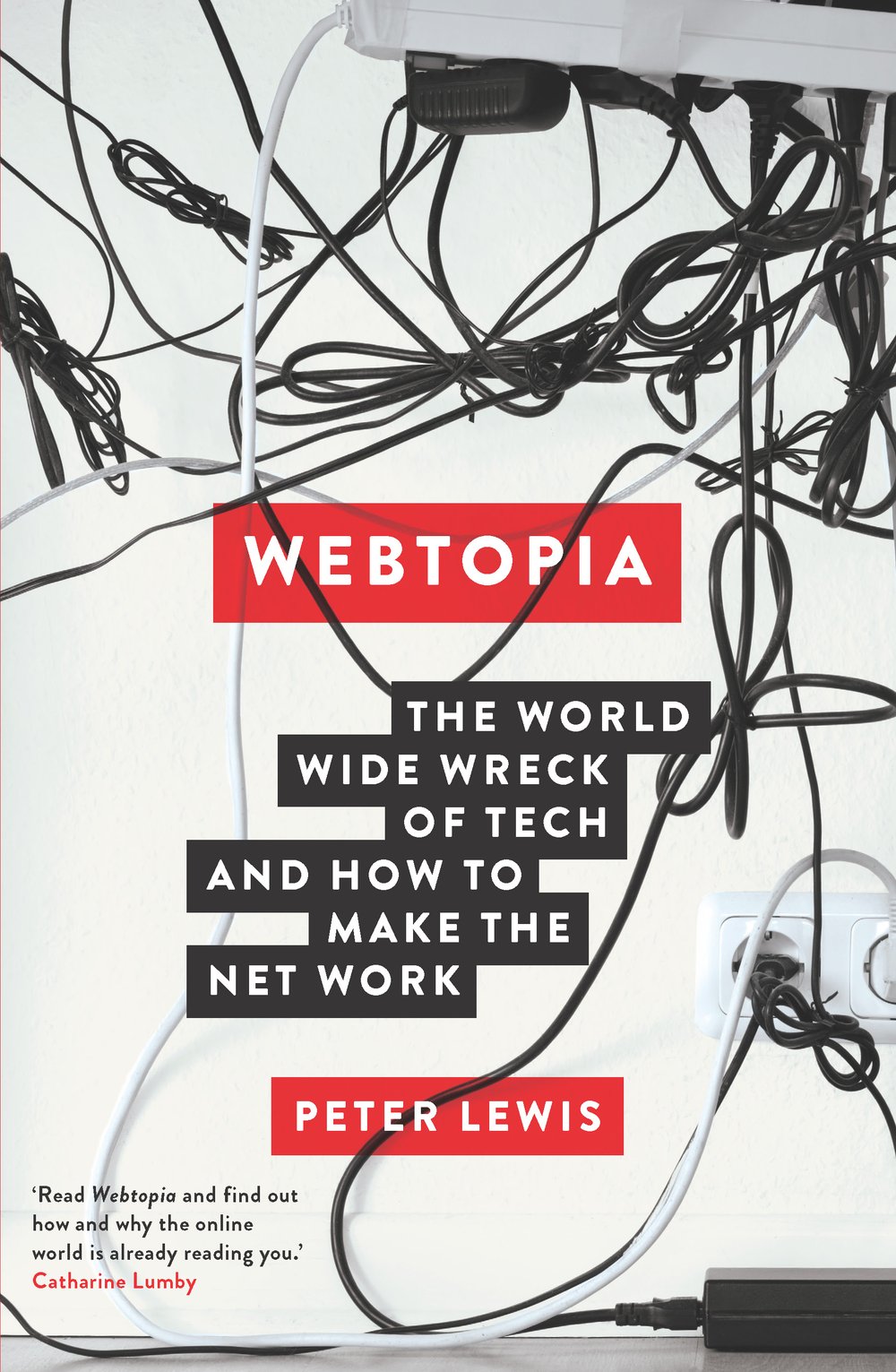One of the frustrating parts of writing a book is that once it is finished it’s set in stone while the rest of the world keeps on spinning out of control. Since I signed off on the final proofs of Webtopia over summer, what I describe as the ‘worldwide wreck of tech’ has only intensified. From a mass murderer live-streaming the Christchurch massacre on Facebook, to the constant drip of research confirming the negative impact of technology on young minds, to our very own post-truth election, the world is coming up with new ways to question our erstwhile blind acceptance that everything that googles is necessarily gold.
I spent the best part of 2018 writing Webtopia in a bid to get my own head around what seems to be going wrong. My starting premise was that if the internet was such an awesome technology, why did things seem so messed up? Too often we witness issues arising as if they are bugs in a beautiful system. What, I worried, if they were actually a feature of the web we were co-creating?
It wasn’t a single thing that prompted this question. It was just about everything. It was the hacks and fake news that propelled a reality TV star into the White House. It was the rise of massive new tech corporations who pay no tax and base their business model on the collection and exploitation of our personal data. It was our inability to agree on a baseline truth that would drive meaningful action on climate change. It was the jobs disappearing to automation. It was the dominance of screens fracturing our families. But most of all it was the noise, the overload of information that sometimes feels like it will suffocate me.
This was not what was supposed to happen. The idea of the web promised to rewrite human history, challenge existing hierarchies, unleash creativity, bring people together. Like most of my generation I embraced the opportunity with open arms, jumping online with a mix of wonder and euphoria, mastering these tools to make things, expand my knowledge and networks, break through the confines of my childhood lived in the final ages of information scarcity. I lapped it all up
Somewhere the promise and the reality of the web diverged and what had been designed as an open and collaborative system became captive to giant global corporations who had established cyber-beachheads. At the risk of spoiling the ending of the book, I haven’t totally given up on the web even if I could. But I think we are at a crossroads where we need to ask ourselves some tough questions now, to challenge ourselves as citizens to start thinking critically about the way this technology is changing our lives.
This is not simply a call for government regulation, although I think there is definitely role for intervention around the way the tech behemoths are dominating their markets. This book is more a call for all of us to be mindful about the world the web is creating with these delightful devices. It’s up to us to demand companies respect our data, it's up to us to protect our kids from becoming fodder to marketers who mascerade gaming as gaming. It’s up to us to do the one thing the tech industry hates more than anything, to log off for a little while and just clear the mind.
In many ways I feel like a pretender writing this book. I am not a subject expert. But I’m definitely a subject to technology’s march and I just can’t sit back any longer and keep quiet. I understand how the Luddites feel when their lifestyle was taken away and I want to find a way of breaking the machines, even if it's ultimately a futile act. I think we owe it to our own humanity to at the very least think about what’s going on around us before it's too late.
That’s the point of Webtopia – a call to arms, a howl at the moon, I’m not sure. One of my old mates who read a draft this book asked me ‘when did you become so old?’ If this is what maturity is about, to recognise the consequences of our passions and dreams then I’m guilty as charged.
Peter Lewis' book Webtopia: The world wide wreck of tech and how to make the net work will be published by NewSouth in June 2019



